Omnibooking vs Calendly: Complete Feature and Pricing Comparison 2025
5 minute readSmall businesses and service providers face numerous options when selecting online booking software. Two platforms that frequently appear in comparisons are Omnibooking and Calendly, each offering distinct approaches to appointment scheduling and client management.
Platform Overview
Omnibooking positions itself as a booking platform specifically designed for small businesses and service providers who need to quickly establish an online booking presence. The platform focuses on providing essential booking functionality with customization options for various service-based industries.
Calendly has established itself as a widely-used scheduling tool that emphasizes simplicity and integration capabilities. The platform serves individuals and businesses looking for straightforward appointment scheduling without extensive customization requirements.
Pricing Structure Comparison
Omnibooking Pricing
Omnibooking offers three pricing tiers designed to accommodate different business needs:
- Free Plan: Available permanently without trial limitations
- Standard Plan: $10 per month with additional features and booking page themes
- Pro Plan: $20 per month with expanded functionality and advanced customization options
Calendly Pricing
Calendly structures its pricing across multiple tiers, starting with a free option and scaling to enterprise-level solutions. The platform's pricing model focuses on user count and advanced scheduling features as primary differentiators between plans.
Core Features Analysis
Booking Page Customization
Omnibooking provides booking pages with theme selection capabilities, allowing businesses to customize their appearance to match brand requirements. The platform includes options for uploading business logos and displaying service areas directly on booking pages.
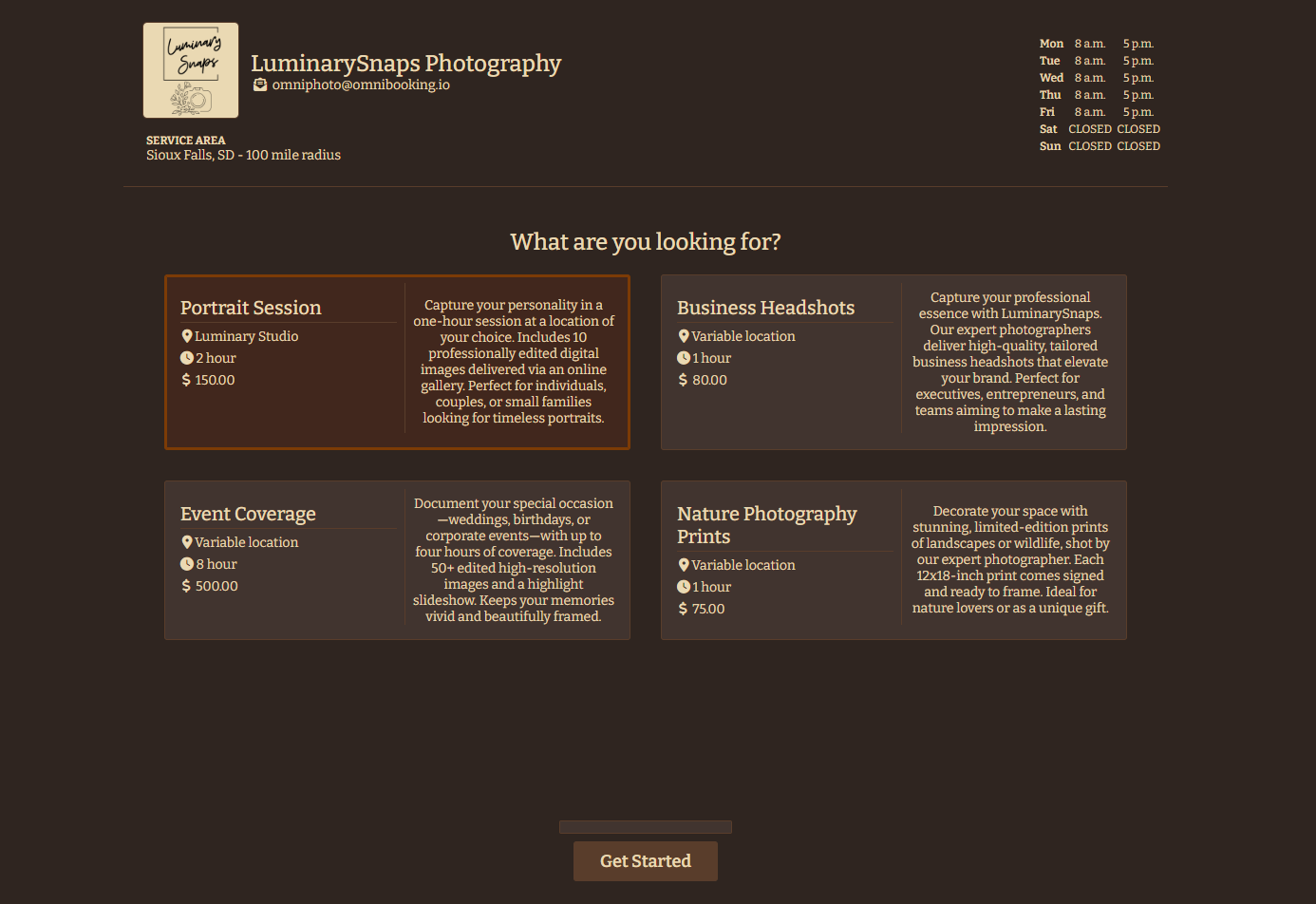
The booking process follows a structured approach, guiding clients through service selection, date and time selection, information input, and payment processing when required.
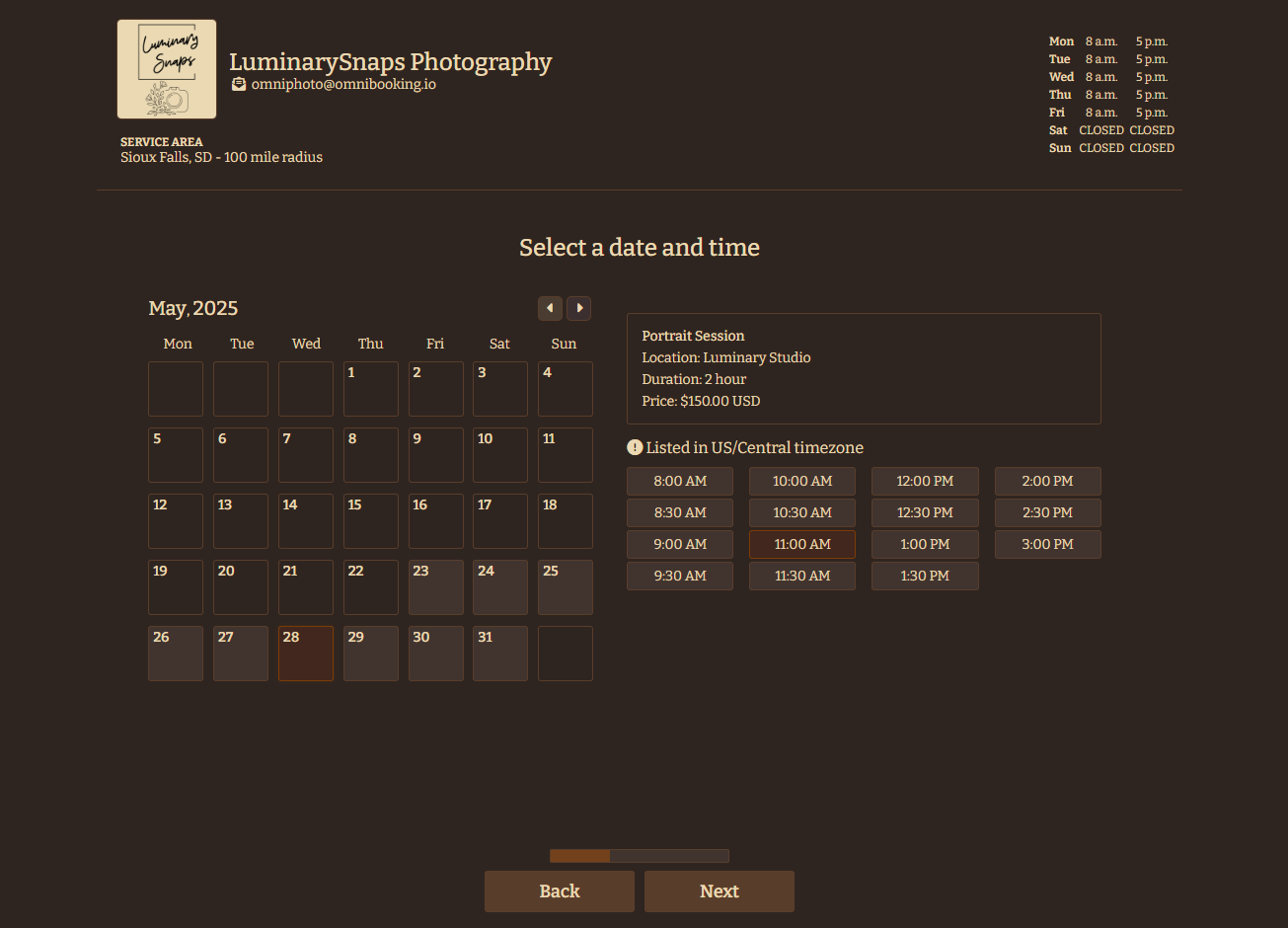
Service Management Capabilities
Omnibooking supports variable location services, enabling clients to enter their specific location requirements during booking. This feature particularly benefits service providers who travel to client locations. Additionally, the platform accommodates variable priced services, where final pricing negotiations occur outside the Omnibooking platform.
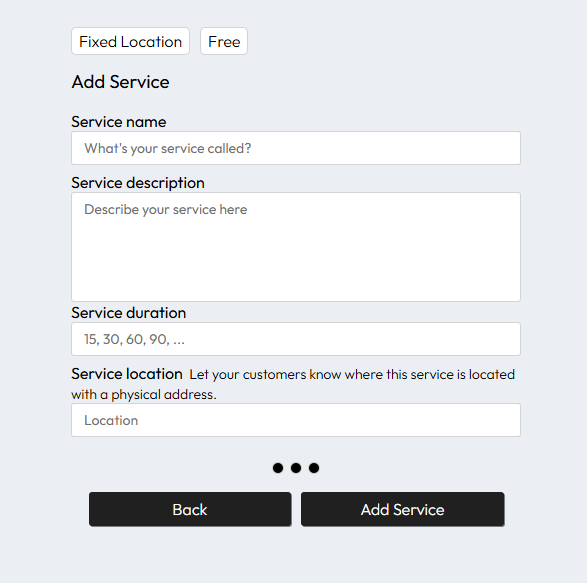
Payment Integration
The platform integrates with Stripe Connect, providing paywall functionality directly on booking pages. This integration allows businesses to collect payments at the time of booking, streamlining the transaction process.
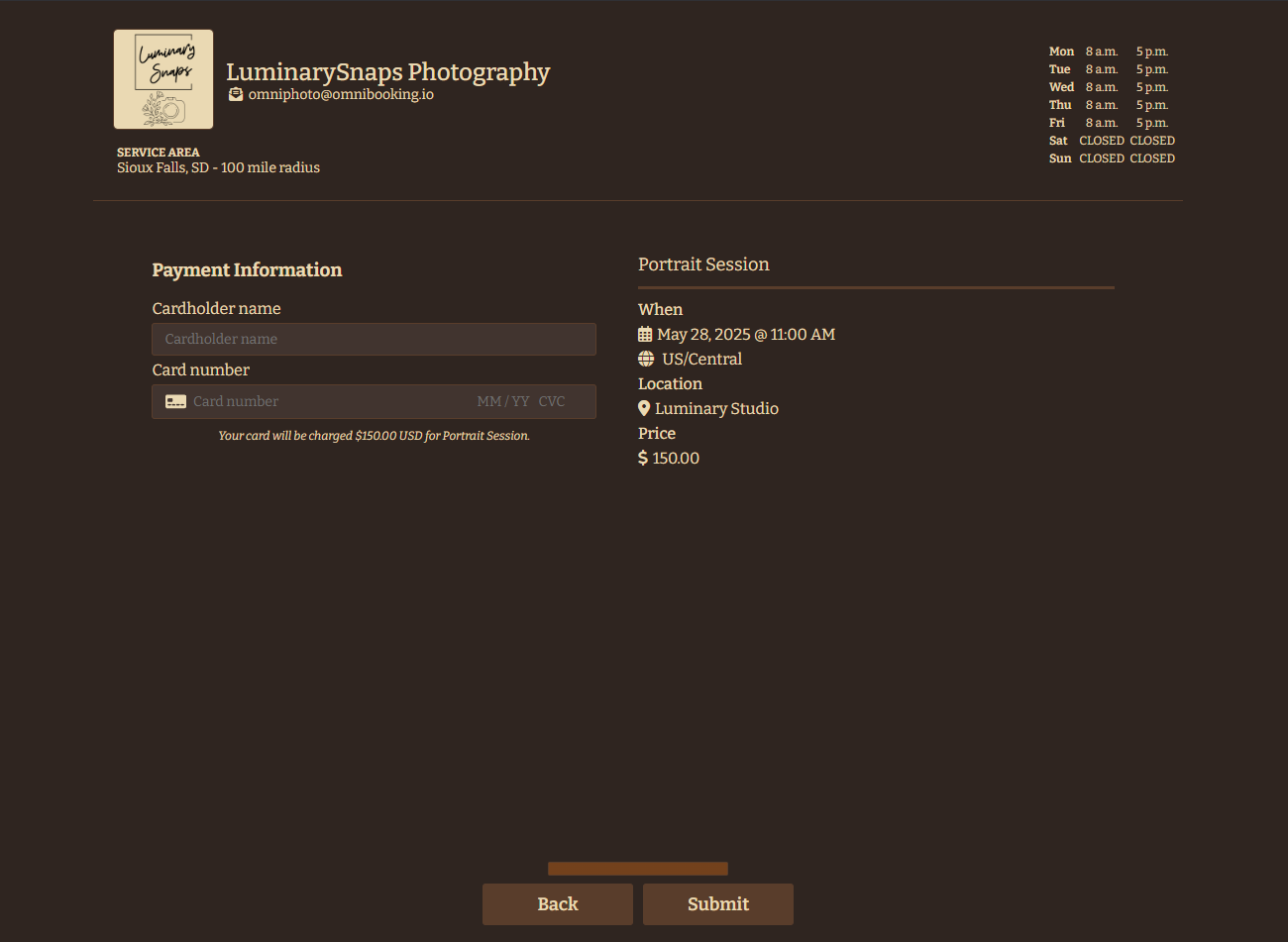
Dashboard and Management Tools
Omnibooking features a modern dashboard that combines analytics, calendar functionality, and management tools in a unified interface. The dashboard provides quick actions for common tasks and comprehensive booking oversight.
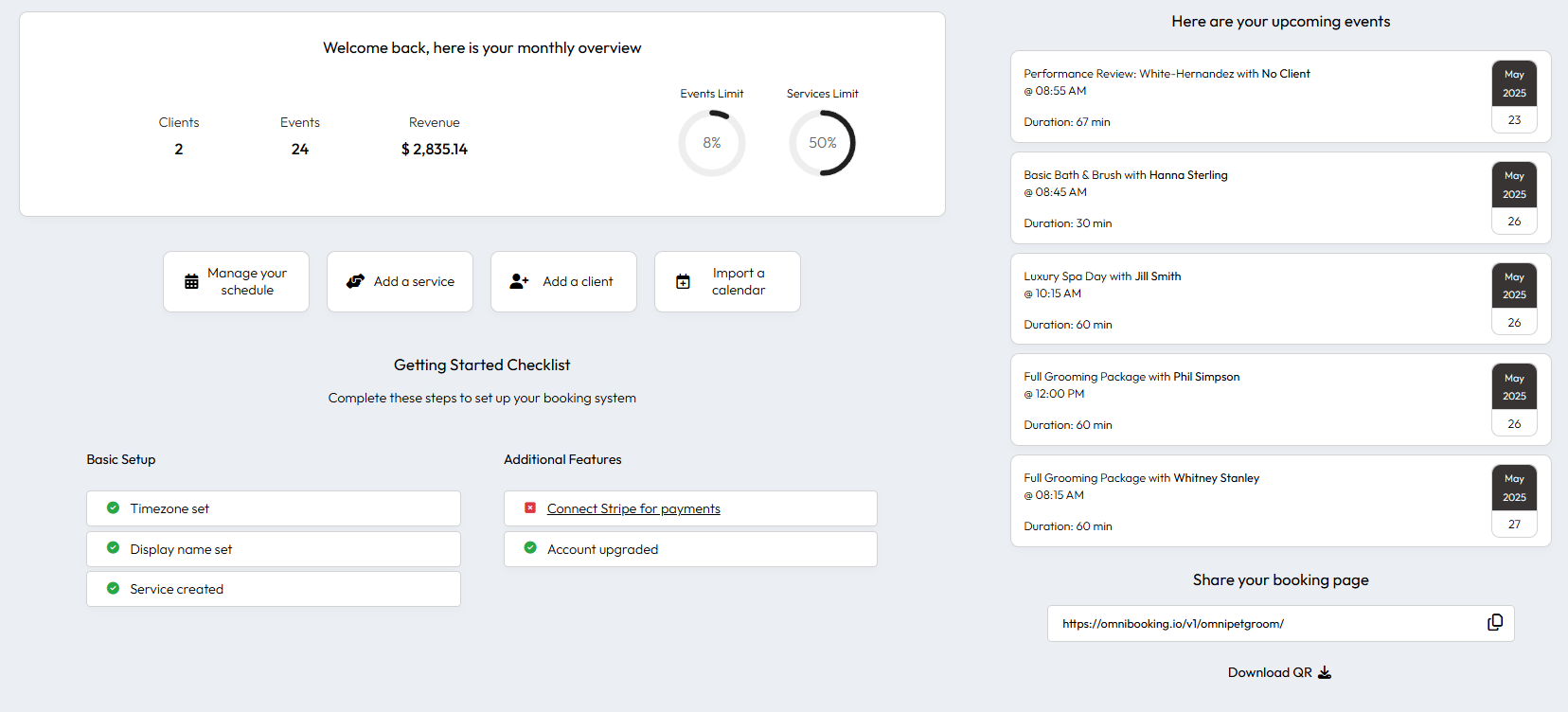
The calendar view offers detailed scheduling management with options for adding events and managing availability.
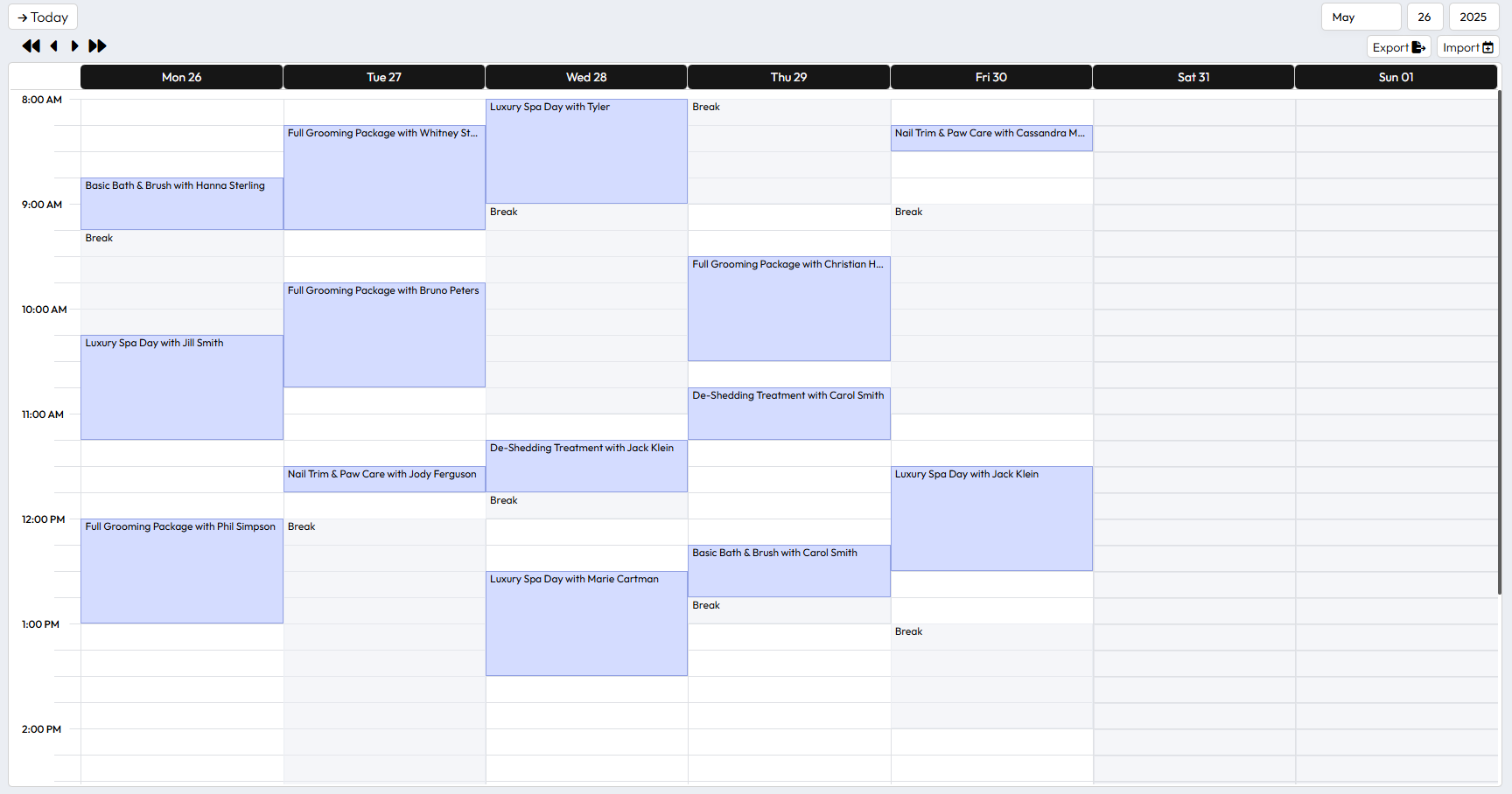
Availability and Scheduling Features
Availability Management
Omnibooking provides comprehensive availability management with support for intraday breaks. This functionality allows service providers to block specific time periods while maintaining overall daily availability.
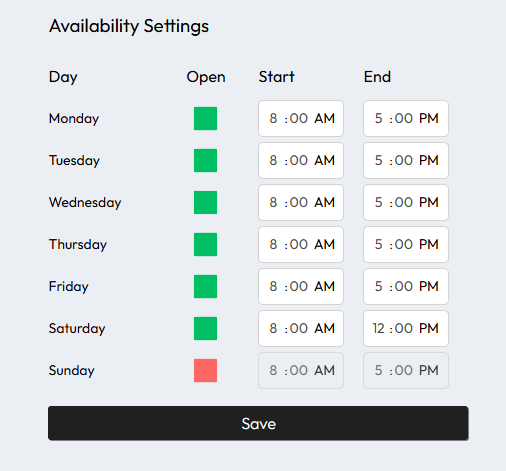
The platform includes dedicated interfaces for adding breaks and managing schedule interruptions.
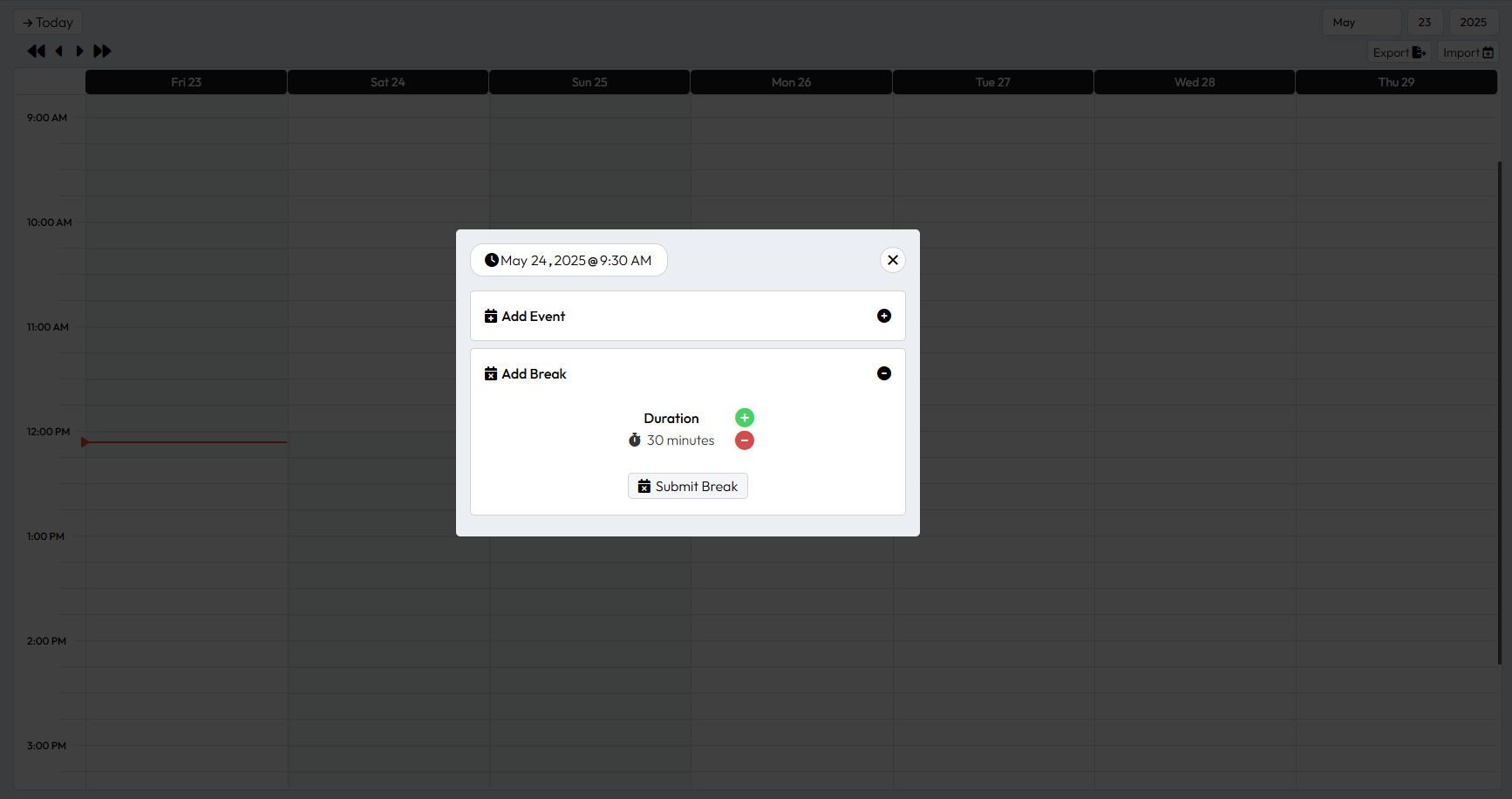
Calendar Integration
Both platforms offer calendar integration capabilities, though with different approaches. Omnibooking provides ICS calendar import and export functionality, along with ICS attachment emails that facilitate easier event calendar integration for clients.
Communication and Reminder Systems
Automated Communications
Omnibooking offers both automated and manual reminder options, providing flexibility in client communication approaches. The reminder system can be configured based on business preferences and client needs.
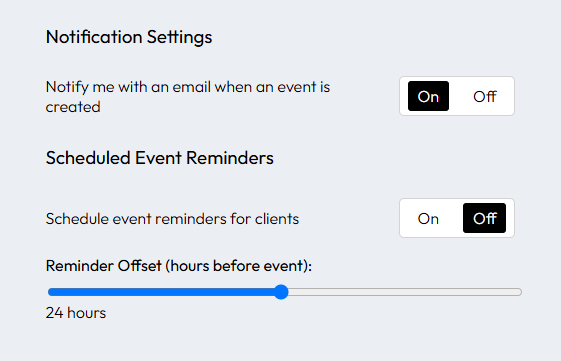
Unique Features and Differentiators
QR Code Generation
Omnibooking includes QR code generation for booking pages, enabling businesses to provide quick access to their scheduling interface through printed materials or digital displays.
Service Area Display
The platform allows businesses to display their service areas directly on booking pages, helping clients understand geographic coverage before initiating the booking process.
Target Audience Considerations
Omnibooking appears designed for service-based businesses that require location flexibility, variable pricing structures, and payment collection capabilities. The platform's features align well with industries such as photography, consulting, home services, and other mobile service providers.
Calendly targets a broader audience including professionals, teams, and organizations that prioritize scheduling efficiency and integration with existing workflow tools.
Integration and Workflow Compatibility
Both platforms offer integration capabilities, though their focus areas differ. Omnibooking emphasizes payment processing through Stripe Connect and calendar synchronization through ICS formats. The platform's approach supports businesses that need comprehensive booking-to-payment workflows.
For businesses exploring comprehensive scheduling solutions, comparing multiple platforms can provide valuable insights. Omnibooking vs. Acuity Scheduling: Comparing Core Features and Pricing for Small Businesses in 2025 offers additional perspective on scheduling platform options.
Implementation and Setup Considerations
Omnibooking's free plan allows businesses to test functionality without time constraints, potentially reducing implementation risk. The platform's focus on quick setup aligns with small business needs for rapid deployment.
Understanding how to maximize scheduling efficiency can significantly impact business operations. How to Automate Appointment Scheduling with Omnibooking provides detailed guidance on leveraging automation features.
Decision Framework
When choosing between these platforms, consider factors such as pricing structure preferences, required customization levels, payment processing needs, and integration requirements. Omnibooking's permanent free plan and service-focused features may appeal to businesses with specific operational needs, while Calendly's established ecosystem might suit organizations prioritizing broad integration capabilities.
The importance of online scheduling for small businesses continues to grow. Why Every Small Business Needs an Online Appointment Calendar explores the broader benefits of implementing digital scheduling solutions.
Both platforms represent viable solutions for different business contexts. Evaluating specific feature requirements against pricing structures and implementation timelines will help determine the most suitable option for individual business needs.